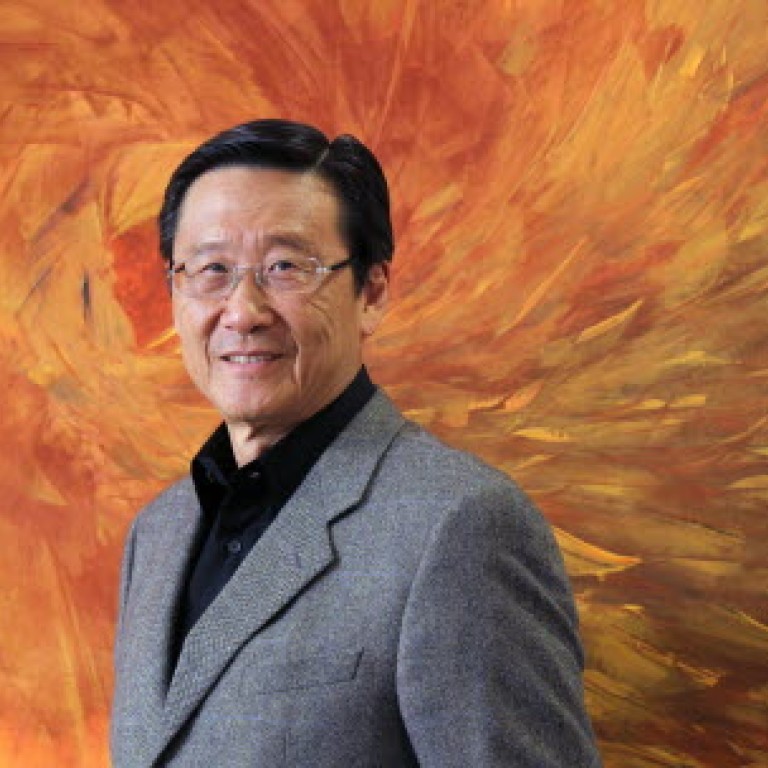
Wharf's equity stake in Greentown a model for Hong Kong developers wanting to expand on mainland
For Hong Kong developers seeking to speed up their forays into the mainland market, Wharf (Holdings) offers a good case study in its equity tie-up with Greentown China, industry analysts said.
Some investors based in the city, led by Asia’s richest man, Li Ka-shing, have been divesting from the mainland property market as they see rising risks from record-high home prices there, while others are still betting on opportunities from the country’s push for further urbanisation, involving hundreds of millions of people.
Hong Kong developers were among the first big players in the mainland real estate market. However, they have lagged far behind their mainland-based peers in recent years, as they struggled to cope with the constantly changing policy environment.
“The way in which Hong Kong developers expand on the mainland market is now changing,” said Edison Bian, a property analyst with CCB International in Hong Kong.
“A classic example is the partnership between Wharf and Greentown. It’s very successful.”
In his view, project-based co-operation between Hong Kong and mainland developers has not been very successful. Firms from the city have often missed the best timing to snap up land parcels during short-lived market downturns in recent years, he said.
Wharf bought into Greentown last year as a strategic investor when the Chinese developer of high-end homes was on the brink of bankruptcy, caught by government policy tightening after its aggressive expansion in the previous few years.
Wharf now holds a 24.4 per cent equity stake in Greentown and perpetual subordinated convertible securities worth about HK$5.3 billion, according to its interim report.
“With such a strategic alliance, while Greentown could leverage on Wharf’s strength in financial discipline, Wharf could bank on Greentown’s expertise and long-term commitment to excellent quality to strengthen its China team and product quality,” the report said.
Wharf could bank on Greentown’s expertise and long-term commitment to excellent quality to strengthen its China team and product quality
The equity partnership took Wharf to 40 cities around China, particularly in the prosperous Yangtze River Delta, where Greentown is headquartered and has a strong presence.
It also brought attributable contracted sales of 15.3 billion yuan (HK$19.3 billion) in the first half of this year, exceeding Wharf’s own sales proceeds on the mainland of 10.9 billion yuan during the same period.
The majority of Hong Kong developers are still extending their footprint on the mainland by undertaking projects on their own or in partnership with a local firm, actively getting involved in the entire development cycle, from land acquisition to design and construction works.
“Both approaches have their merits, in terms of building the company’s experience and knowledge of the mainland market, and quickly gaining market exposure,” said a spokesman from The Link, which manages a real estate investment trust in the city.
Burned in China’s property boom-bust in the early 1990s, Hong Kong developers have been prudent and steady in widening their footprint in the mainland’s housing market, although they have always been leaders in the management of retail properties.
They still focus on the quality rather than the quantity of homes sold, and it is becoming increasingly difficult for them to find the right person on the ground, as talent is in short supply, while the market explodes, analysts said.
Meanwhile, their mainland peers have been mass-producing homes to cash in on strong demand from newly rich families, keeping their pace in tune with market ups and downs alongside the Chinese authorities’ efforts to rein in housing inflation.
Some mainland developers can shorten their construction cycle to between six and nine months, while it takes much longer, often two years or more, for Hong Kong firms to start selling a residential project after they buy the land, stoking accusations from the media that they are hoarding land for capital gains.
For example, China Vanke, the country’s largest homebuilder by sales, sold 13 million square metres of properties last year, up from 2.3 million square metres in 2005.
Over the same period, the sales volume of New World Development on the mainland barely changed, to 780,379 square metres from 754,474 square metres.
“This is why they need to change from project co-operation to equity and financial partnership. This is a very wise move,” Bian said.

